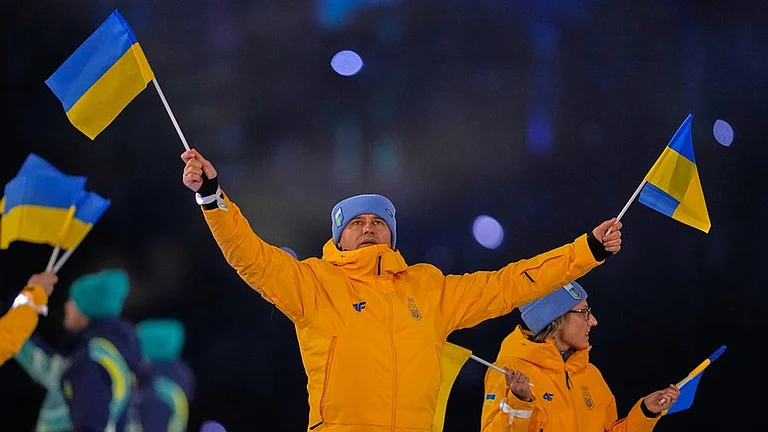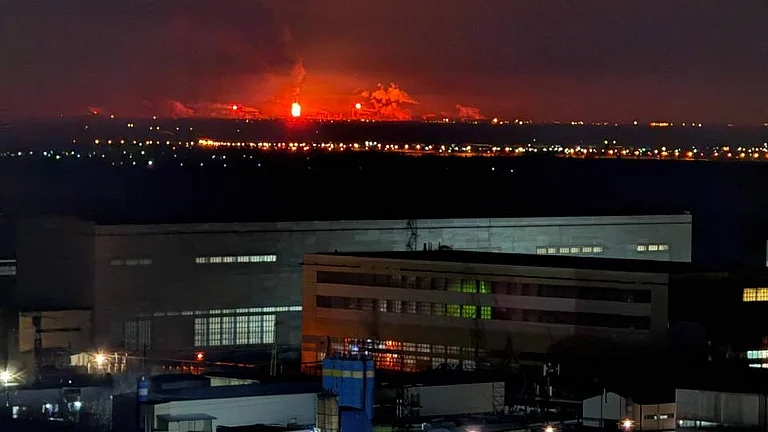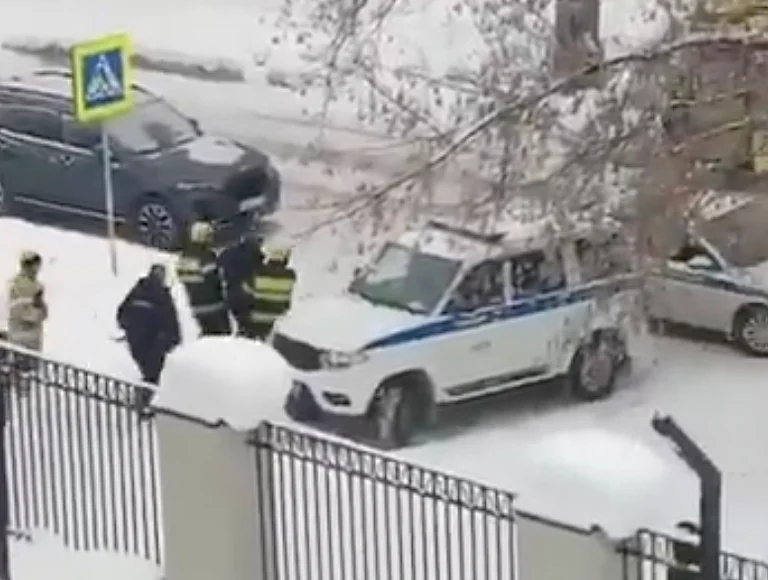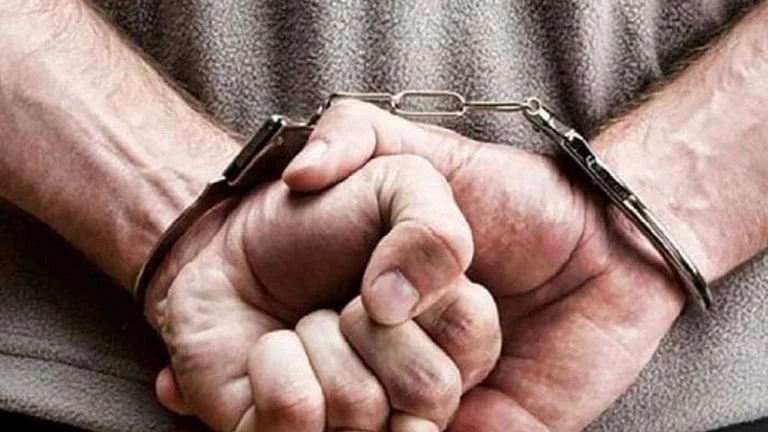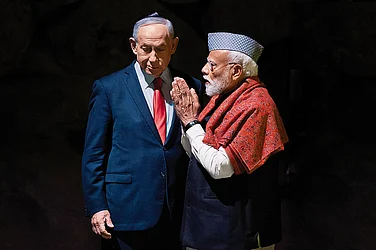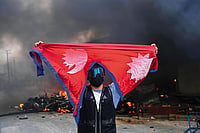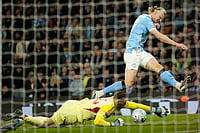The Russian prison service on Friday said that Alexei Navalny, the most vocal Opposition leader in the country, has died in prison. He was 47-years-old.
Navalny was the Founder of the Anti-Corruption Foundation (ACF) and the leader of the Russia of the Future party. He was the fiercest critic of longtime Russian leader Vladimir Putin.
While the Russian prison service said that Navalny has died, his spokesperson Kira Yarmysh said she does not have immediate first-hand confirmation. She said a lawyer of Navalny was headed to Kharp where he was imprisoned to assess the situation.
Navalny was serving a 19-year prison sentence for conviction on charge of extremism. The conviction has been widely believed to be politically-motivated. Before his conviction and sentencing, he campaigned on an anti-corruption platform, organized major protests against Putin's regime, and contested the election to be the Mayor of Moscow, the capital of Russia.
Navalny also suffered nerve agent poisoning in 2020 and was airlifted to Germany for treatment. He had blamed the poisoning on Putin. He was arrested after his return and was imprisoned. Here we trace the life and political journey of Navalny, explain his anti-corruption activism, and explore what we know so far of his death.
Who Was Russian Opposition Leader Alexei Navalny?
Alexei Navalny was born on June 4, 1976. He studied to be a lawyer and began anti-corruption activism. Over the years, he gained worldwide recognition as one of the fiercest critics of Vladimir Putin, the Russian leader who has ruled the country since 1999.
In the early years of Putin's rule, while there were still hopes that Opposition might still hold some sway in the country, Nevalny joined Yabloko in 2000, a political party that favoured liberal democracy and free market economy. He rose to the local leadership of the party but was expelled in 2007. While Navalny said he was expelled for personality clashes with party leader Grigory Yavlinsky, the party said he was thrown out for "nationalistic activities" and far-right marches.
Following the exit from the Yabloko party, Navalny started his journey of anti-corruption activism. In 2013, besides his anti-corruption activism, he dove into active politics and ran for the mayoral office in Moscow. That also marked the beginning of his political consequences. In 2014, Navalny was given a three-and-a-half-year suspended sentence on fraud charge and his brother was imprisoned for three-and-a-half years. Over the years, Navalny has maintained that his convictions have been politically motivated to rule out any opposition to Putin.
The Associated Press noted that Navalny's rise in Putin's Russia as his critic was extraordinary as he continued to grow in a country where "political opponents often faded amid factional disputes or went into exile after imprisonment, suspected poisonings, or other heavy repression".
"But Navalny grew consistently stronger and reached the apex of the opposition through grit, bravado and an acute understanding of how social media could circumvent the Kremlin's suffocation of independent news outlets," noted AP, highlighting that his dogged pursuit of his causes let him to make the decision to return to Russia after recovering in Germany where he was airlifted to after a nerve agent poisoning in 2020.
The AP further noted, "He faced each setback —whether it was a physical assault or imprisonment— with an intense devotion, confronting dangers with a sardonic wit. That drove him to the bold and fateful move of returning from Germany to Russia and certain arrest."
Anti-Corruption Activism And Politics Of Alexei Navalny
In 2008, Alexei Navalny entered anti-corruption activities with his stakeholder activism. He used to buy stakes in publicly traded Russian companies and gain entry into shareholders meetings where he used to grill officials about corruption.
In Russia, oligarchy reigns supreme. Oligarchs are a group of elite Russian figures who form the top echelons of Russia and also form the inner circle of Vladimir Putin. In many Russian companies, both state-owned and private, a lot of top executives were allies of Putin. The anti-corruption platform of Navalny provided him a unique position to take on Putin without directly addressing him and also addressing the popular societal resentment of corruption.
Navalny's platform was so effective that it forced the then-Russian President Dmitry Medvedev (2008–12) to acknowledge corruption.
"Navalny documented his efforts in a blog that became so popular that Russian Pres. Dmitry Medvedev (2008–12)—who took office as part of a power-sharing agreement with a term-limited Putin—was forced to acknowledge the scale of corruption. According to Medvedev himself, a trillion rubles (about $31 billion) was being embezzled annually from the state procurement system," notes The Britannica Encyclopaedia.
In 2010, Navalny launched a whistleblower website that publicised cases of government contracts appearing to be unfairly awarded. The site was so popular that it began to have 1 million monthly visitors in six months.
During his anti-corruption activism days, Navalny coined the phrase "party of crooks" for Putin's United Russia party that became a catchphrase in protests.
In 2011, following allegations of irregularities in elections, Russia witnessed the largest elections since the Fall of the Soviet Union. Navalny called upon his supporters to support any party or candidate other than Putin. Despite state repression, Putin's party won less than half of popular vote. Navalny was jailed for 15 days for participating in a banned protest and the protests marked the moment he came to the particular attention of Kremlin.
"Navalny’s rise to prominence did not go unnoticed in the Kremlin, and, when Putin returned to the presidency in 2012, he immediately moved to clamp down on dissent. In June, barely a month after the end of the Medvedev interregnum, Navalny was one of several opposition figures whose homes were raided by law enforcement officers. Navalny was targeted with a criminal investigation on suspicion of corruption, and Putin enacted harsh new penalties for individuals who participated in unauthorized rallies," noted The Britannica.
In 2013, Navalny ran for the post of Moscow's Mayor. The day after he announced his candidature, he was convicted in a case of embezzlement and was sentenced for five years. The case was seen as being politically-motivated. The sentence was later suspended and he walked free. In the election, Navalny finished second behind a Putin ally with 27 per cent vote. The BBC said it was considered a dramatic success as he had no access to state TV and relied only on the internet and word of mouth for the campaign.
In the years since, Navalny emerged as the fiercest critic of Putin and challenged him directly. In 2015, he announced his intention to challenge Putin in presidential election. The following year, the embezzlement case is reopened and he is sentenced to a five-year suspended prison sentence. In 2017, Navalny is arrested for at least 95 days for banned rallies and is rejected from the ballot in the run-up to the presidential election the next year.
Then, in 2020, Navalny fell sick on the regional campaign trail in Siberia in a nerve agent campaign that he blamed on Putin. He was airlifted to Germany for treatment. After recovering, he returned to Russia and was expectedly arrested upon arrival at airport and then convicted and sentenced to a penal colony within weeks. The poisoning of Navalny and the following convictions followed popular protests against Putin and have been seen as being politically-motivated.
In Germany, it took the German authorities two weeks to confirm that Navalny had been poisoned with a military-grade nerve agent from the Novichok family, a class of chemical weapons developed by the Soviet Union known to be used against critics of Putin's regime, according to The New York Times.
"After waking from a medically induced coma, Mr. Navalny would go on to say that the poison had been planted in his underwear at his hotel sometime before he boarded a flight in Siberia. He had traveled to the region to help organize opposition candidates before local elections," reported The Times.
What We Know Of Alexei Navalny's Death, What It Means For Russia
The Russian prison authorities on Friday said Alexei Navalny died shortly after he fell while on a walk.
The Federal Penitentiary Service of Russia said Navalny had "felt unwell" after a walk and "almost immediately lost consciousness". The authorities said an ambulance was summoned and all necessary resuscitation measures were taken but he Navalny could not be saved. The exact cause of death was not known.
Navalny's death means that there is no considerable critic of Putin left in the country anymore and the near-total control of Putin is now expect to become even more totalitarian with near-zero opposition. Writing in The New York Times, Anatoly Kurmanaev noted that Navalny's death threatens to deal a major blow to Russia's already marginalized opposition movement.
Kurmanaev noted that Navalny was a towering figure in Russia who was "an internationally recognised voice of dissent" to Putin's regime and "someone with an unmatched political network".
"It would be impossible for someone to become Navalny 2.0 in today’s Russia. We are dealing with a very different political system today," said Ben Noble, a political scientist at University College London, to The Times.



